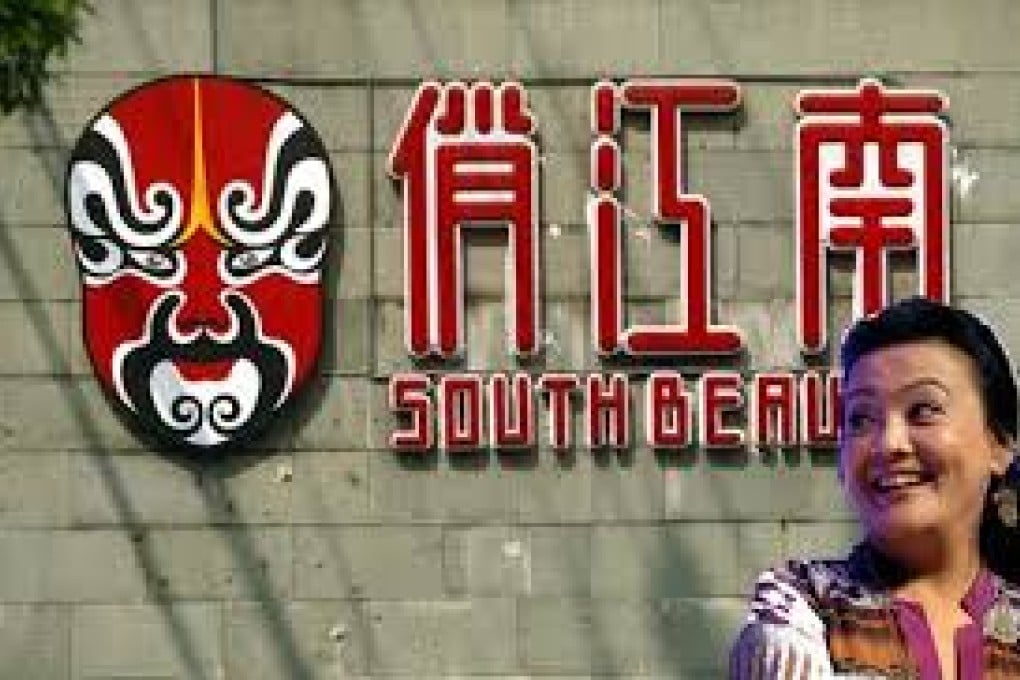After court order, flamboyant Chinese restaurateur Zhang Lan gets roasted online
Flamboyant businesswoman Zhang Lan draws social media attention over court battle

The fate of Zhang Lan, once hailed as one of China's most successful businesswomen, has come under intense media scrutiny after private equity group CVC Capital Partners won a court order to freeze her assets following a business dispute.
The private equity group bought a controlling stake in her high-end restaurant chain South Beauty last year. The Hong Kong High Court granted an order dated March 6 that assets under Zhang and two other respondents, Grand Lan Holdings Group and South Beauty Development, be frozen in aid of arbitration.
Zhang is a flamboyant figure in China, and her son, Wang Xiaofei is married to Taiwanese actress Barbie Hsu Hsi-yuan. One of the more popular digs at the family's affairs making the rounds on social media came from Wang Sicong , the scion of mainland property tycoon Wang Jianlin . Hsu "wept and fainted in the washroom" after she heard about the court order, he said on his Weibo account.
Wang Sicong was publicly scolded by Xinhua last month after he remarked on Valentine's Day that he preferred buxom girlfriends, forcing his father to appear on state television blaming his son's Western education for his crassness.
Zhang Lan and the joke by Wang were among the most popular search terms on Sina microblog yesterday. Other online users said that "even if Zhang Lan's wealth is frozen, her son Wang Xiaofei is still wealthy".
CVC bought 82.7 per cent of South Beauty in April, 2014, for a reported US$300 million after the restaurant chain failed to list on the mainland and in Hong Kong.